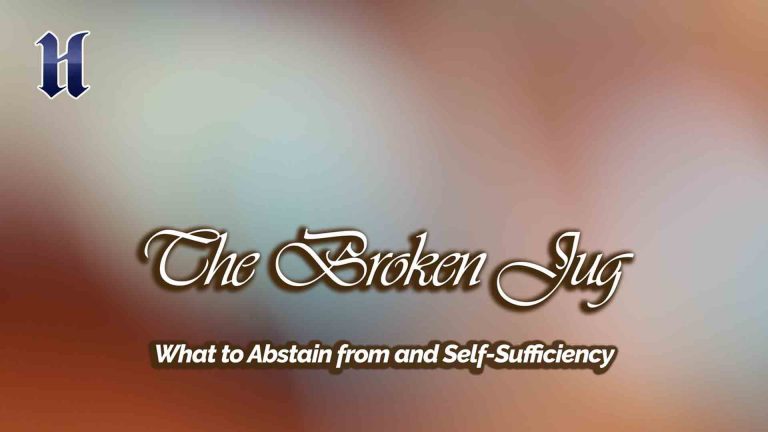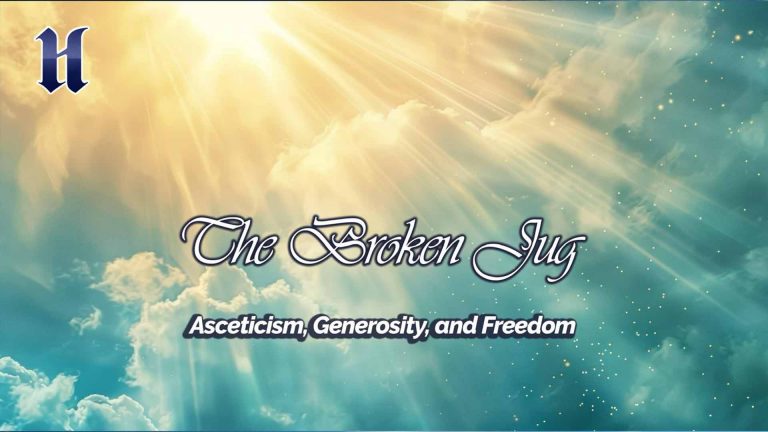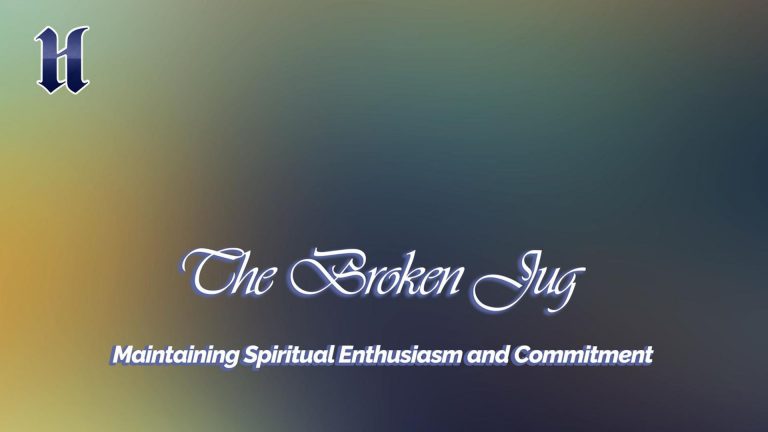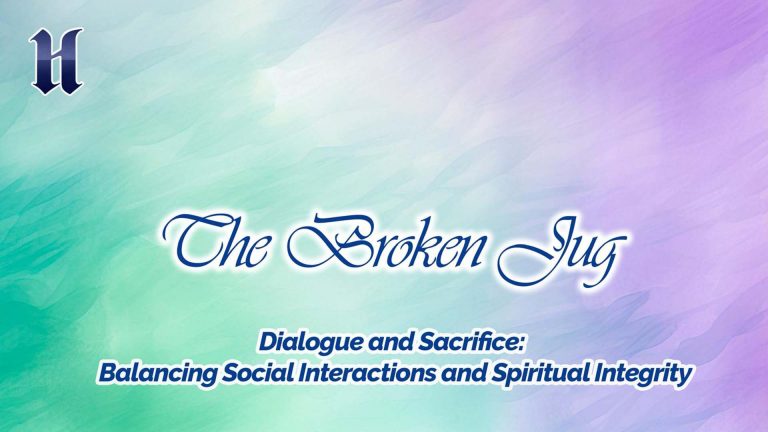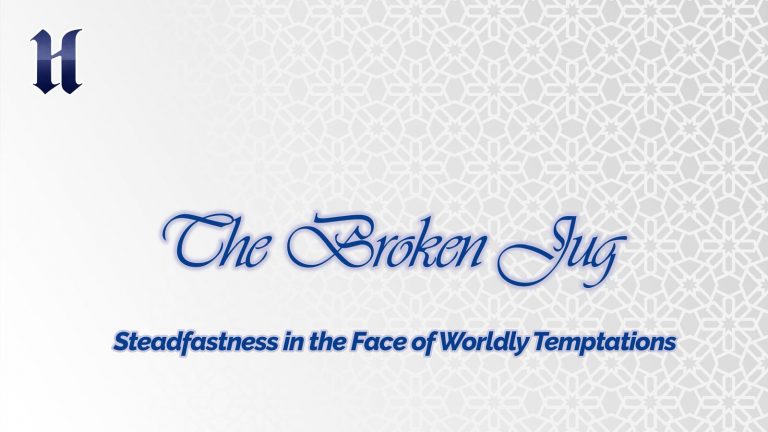İçindekiler
Question: Some actions taken to initiate dialogue with others or to safeguard one’s spiritual journey might be seen as compromising religious principles by certain groups. Are there specific guidelines and limits to follow in such situations?
Answer: In order for those dedicated to serving the teachings of the Qur’an to navigate their path unhindered and unburdened, certain considerations must be taken into account to ensure a smooth journey. These considerations may stem from administrative structures, individuals, or societal dynamics. Neglecting the diverse perspectives and sentiments of various individuals and communities, each influenced by their distinct geographical and cultural contexts, can lead to unfavorable consequences. Pursuing endeavors in the face of widespread opposition is likely to escalate resistance from all corners. Such an approach could inadvertently foster a formidable resistance that even the most adept strategists would struggle to address. Therefore, wise action dictates that we commence by acknowledging the diversity within society, engaging with individuals holding differing viewpoints, finding common ground with them, and striving to reach agreements on shared principles to the greatest extent possible. This approach is not tantamount to compromising our faith. What remains crucial is your genuine intention and ultimate objective.
The Guiding Principle of Reciprocity
In the pursuit of harmonious coexistence among diverse segments of society, along with individuals who hold contrasting worldviews, the key lies in establishing channels of dialogue. This entails embracing each individual in their entirety, demonstrating tolerance for attributes that may diverge from one’s own beliefs, mitigating any harshness through patience and understanding, employing behaviors aligned with universal human values to inspire analogous sentiments in others, and fostering an environment where it is perceived that a shared commitment to universal human values guides your journey. Adhering to these prerequisites is paramount for navigating your chosen path with unwavering assurance.
Engaging with individuals spanning various strata of society and collaborating on endeavors that align with common goals, without compromising your principles, is both plausible and enriching. Indeed, when you accord due respect to the perspectives of those you encounter, a reciprocal sense of respect is likely to be cultivated in return. The esteem you hold for them will be reciprocated in kind, engendering mutual regard.
Seeking solace in the humanistic values upheld by others, and entrusting certain matters to their innate humanity, simultaneously entails nurturing and safeguarding your own humanity. Neglecting these responsibilities may lead to encountering a multitude of impediments along your path.
Embracing Dialogue through Conviction and Clarity
One who is firmly anchored in the belief that they embody the truth, with values rooted in reason and rigorously scrutinized by logic, has little cause for concern in engaging in dialogue with others. When an unshakable confidence permeates your values and their execution, there is no need to hesitate when reaching out to diverse factions, uniting on various platforms, or engaging in the exchange of perspectives.
Should you harbor a resolute message meant for the betterment of humanity, this path is your sole conduit for its dissemination. Proceed forthwith, invoking the names of the Divine: “In the name of God,” “With God,” and “Toward God.” Traverse this course unwaveringly, free from the notion of compromise. Understand that without dialogue among divergent groups or the presence of enmity, true communication remains elusive. Only by convening with individuals of varying sentiments and viewpoints on common ground, fostering familiarity and nurturing trust, can your message find resonance.
People can only broaden their horizons and embrace novel concepts when their rigidity softens. Just as a body must relax to facilitate the acceptance of injected medicine, individuals must also ease their mental rigidity to embrace alternate perspectives. Such a state of receptiveness is difficult to attain for those who clench themselves tightly.
Embracing Interfaith Engagement: A Global Perspective
In today’s interconnected world, akin to a global village, your faith does not discourage you from engaging with practitioners of other religions. Attending their events, as long as they do not contravene our core beliefs, and even visiting their places of worship can be beneficial, without jeopardizing your own convictions. Reflecting on my own experiences, during my time in Edirne, Turkey, before commencing my mandatory military service, I frequented a synagogue where I listened to the Jewish prayers. This encounter afforded me a deeper understanding of their community. Through various interactions, I engaged in dialogues that expanded my awareness of their religious practices, rituals, and spiritual connection.
I can confidently attest that these interactions did not in any way compromise my own religious adherence. The act of displaying interest in the culture, life, or beliefs of others fosters a reciprocal curiosity. When you inquire about their well-being, they, in turn, will inquire about yours. This engenders an environment where you can interact more openly and sincerely.
Certain individuals or groups have raised questions about my meeting with the Pope John Paul II at the Vatican in 1988. They portrayed this encounter as a concession on our part. However, this was far from the truth. That meeting yielded highly positive outcomes. Doors that were once closed opened, the atmosphere grew more welcoming, and fresh avenues for dialogue materialized. Engagements aimed at fostering dialogue might be seen by both parties as opportunities to introduce or advocate for their respective causes. Such instances often pave the way for a broader outreach, where diverse groups are engaged. This is entirely unobjectionable. As I’ve emphasized before, an individual confident in their own values need not harbor concerns about such engagements.
The Exemplary Conduct of God’s Messenger
Our beloved Prophet, peace and blessings be upon him, left behind an unparalleled legacy of virtuous actions and conduct, replete with instances that serve as guiding lights for us. His life is replete with remarkable illustrations of his commitment to fostering dialogue. He warmly welcomed a Christian delegation from Najran into the sanctum of Masjid al-Nabawi. Likewise, emissaries and envoys from various corners of the world found solace in his hospitality within that sacred space. Here, the Messenger of God would receive them with open arms, listen intently, offer gifts, accord them respect, and establish pacts of understanding. The gifts extended to him were graciously accepted and employed.
The personal life of our esteemed Prophet and his unwavering connection with the Divine did not preclude him from initiating dialogue with a diverse array of groups, all the while demonstrating exceptional tolerance. Indeed, this was an integral facet of his prophetic responsibility. He interacted with others with reverence, while upholding the principles of his faith. His humility radiated through his actions, words, interpersonal relationships, and overall demeanor.
This expansive atmosphere of tolerance, marked by the magnanimous conduct and gestures of Prophet Muhammad, the Pride of Humanity, intrigued those he addressed. Capitalizing on their genuine curiosity, he adroitly harnessed their interest to advance his noble cause, showcasing his extraordinary prophetic wisdom.
Harmony with the Principles of Our Faith
It is abundantly clear that these endeavors towards fostering dialogue stand in complete alignment with the fundamental principles of our religion. To label them as compromises would be a grave misunderstanding and a failure to grasp the profound life and teachings of the Pride of Humanity. Anyone who perceives these efforts as compromises likely suffers from intellectual and theological misconceptions. In truth, a Muslim is urged to emulate our Prophet’s actions, with the exception of behaviors exclusive to his unique role. He is our guide in all aspects, a consummate exemplar for us across the spectrum of existence. To stray from his path would have left us to navigate using our limited understanding, deprived of the luminance he provides.
In this context, I am compelled to share the blessed saying of God’s Messenger: “Just as He ordered me to carry out the obligatory commandments, God commanded me to get along with people as well” (Ad-Daylami, Al-Firdaws, 1:176). Indeed, God’s Messenger was enjoined to cultivate relationships, taking into account the intellectual framework and cultural context of each individual. Such an approach was imperative for him to effectively communicate God’s message to its intended recipients. Before people could fully comprehend his message, they needed to accept him based on his conduct, behavior, and embodiment of his values. In fact, actions should precede words; manners and behaviors take precedence, and words serve to elucidate the more intricate aspects. Your conduct shapes your identity as loyal, trustworthy, honorable, and virtuous. This, in turn, incites an eagerness in people to lend an ear to your words. Your spoken expressions serve to expound upon those aspects of your character that may remain veiled in actions, clarifying succinct points and dispelling doubts. All of this is achieved through the cultivation and nurturing of profound connections with those around you.
Navigating Ethical Dilemmas: The Principle of Choosing the Lesser Harm
In your journey, it is essential to acknowledge that you coexist within a society that encompasses individuals harboring malicious intentions and malevolent inclinations, capable of inflicting harm upon you or others. As you strive to advance your cause or convey your message, you are bound to encounter such individuals. In this context, your duty becomes clear: safeguard your efforts from being obstructed by those who may undermine the greater good of society.
Certain human and religious interactions, as well as specific manners and conduct exhibited in association with these individuals, might be misconstrued as “compromise,” “strategic maneuvering,” or “yielding.” However, these interactions and behaviors may be undertaken to secure greater societal benefits or to avert imminent threats and perils. Just as our esteemed God’s Messenger demonstrated in the Peace Treaty of Hudaybiya, you may adopt these practices with the expectation that these “concessions” will yield more significant accomplishments in return.
This ethical approach can be encapsulated by the principle of “opting for the lesser of two evils,” an integral tenet within the framework of Islamic law. Moreover, you might invoke the principle of Islamic jurisprudence that asserts: “Absolute necessity makes permissible what is forbidden.” In situations where the urgency of a circumstance demands, certain actions that might otherwise be considered impermissible may become permissible when weighed against the greater good.
In navigating these intricate situations, your judgment should be guided by a clear understanding of the potential benefits, the nature of the perceived “concessions,” and the overarching goal of contributing positively to society. It is through the artful balancing of these factors that you can effectively uphold the values and principles that guide your actions, while also ensuring that your efforts yield the maximum benefit for the collective well-being.
The Complex Calculus of the Hudaybiya Peace Treaty
When scrutinizing the provisions of the Peace Treaty of Hudaybiya, one might perceive what appear to be concessions that challenge the core religious values and dignity of the Muslim community. A surface analysis of the treaty’s terms might lead to confusion and difficulty in accurately assessing its significance, particularly when taken alongside its historical context. This intricate scenario prompted even Umar ibn al-Khattab al-Faruq, a revered exemplar of unwavering devotion to God, to approach the Messenger of God, peace and blessings be upon him, to express his unease regarding the treaty’s stipulations. On that day, a considerable number of Companions shared similar reservations.
However, it is imperative to recognize that the treaty was established under the guidance of Divine wisdom. God’s Messenger, through his remarkable prophetic acumen in comprehending and executing Divine revelation, meticulously calculated the potential ramifications of the actions undertaken. With profound insight, he harnessed the advantages afforded by the peaceful environment engendered by the treaty. He maximized his ability to maneuver within the Arab deserts, utilizing this freedom to its fullest extent. In doing so, he adeptly disseminated the divine message across the expanse of the Arabian Peninsula, reaching tribes far and wide.
Ultimately, a comprehensive evaluation reveals that the Hudaybiya Peace Treaty yielded substantial benefits for the cause of Islam and the Muslim community. While initial appearances may suggest concessions, the treaty facilitated a strategic platform from which the Messenger of God could advance his mission with heightened efficacy. This sagacious approach culminated in the treaty serving as a pivotal step in the propagation and eventual triumph of Islam across the Arabian Peninsula.
Guided by the Prophet’s Path: Navigating with Wisdom
It is imperative that we remain resolute and unwavering in our commitment to the path illuminated by the exemplary life of God’s Messenger. In the face of detractors labeling our efforts as “compromise,” we should press forward undeterred, guided by sagacity and discernment. Those actions or behaviors, unjustly dismissed as compromises, may, in fact, be the conduits to securing opportunities, time, or even winning over hearts.
In certain instances, circumstances may dictate the need to choose the lesser of two unfavorable options—a choice that is predicated on an unyielding commitment to goodness. This principle, rooted in the essence of Islamic jurisprudence, aligns with the broader objective of attaining immense goodness over time. Your unwavering dedication to your cherished values remains steadfast. Yet, simultaneously, your actions are informed by insight and wisdom, accounting for the greater well-being of society and humanity. You exercise restraint, refraining from provoking those who seek discord. You recognize the gradual nature of change in deeply entrenched perspectives or practices. You avoid hasty actions that could disrupt the progress already achieved or undermine constructive efforts.
Steering clear of populist inclinations, you consult with your peers and turn to reason when making decisions. Even when appearances suggest concessions in your interactions with others, your life remains characterized by unwavering integrity and authenticity. Your course is a meticulously crafted balance between unwavering principles and astute pragmatism, embracing the teachings of God’s Messenger while navigating the complexities of the world with grace and sagacity.۞


